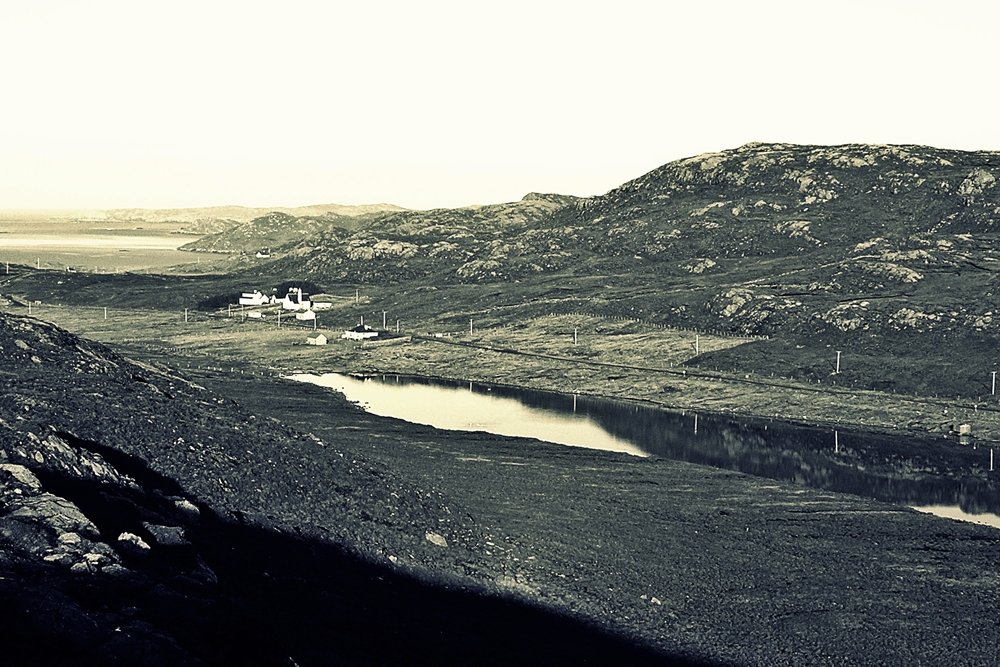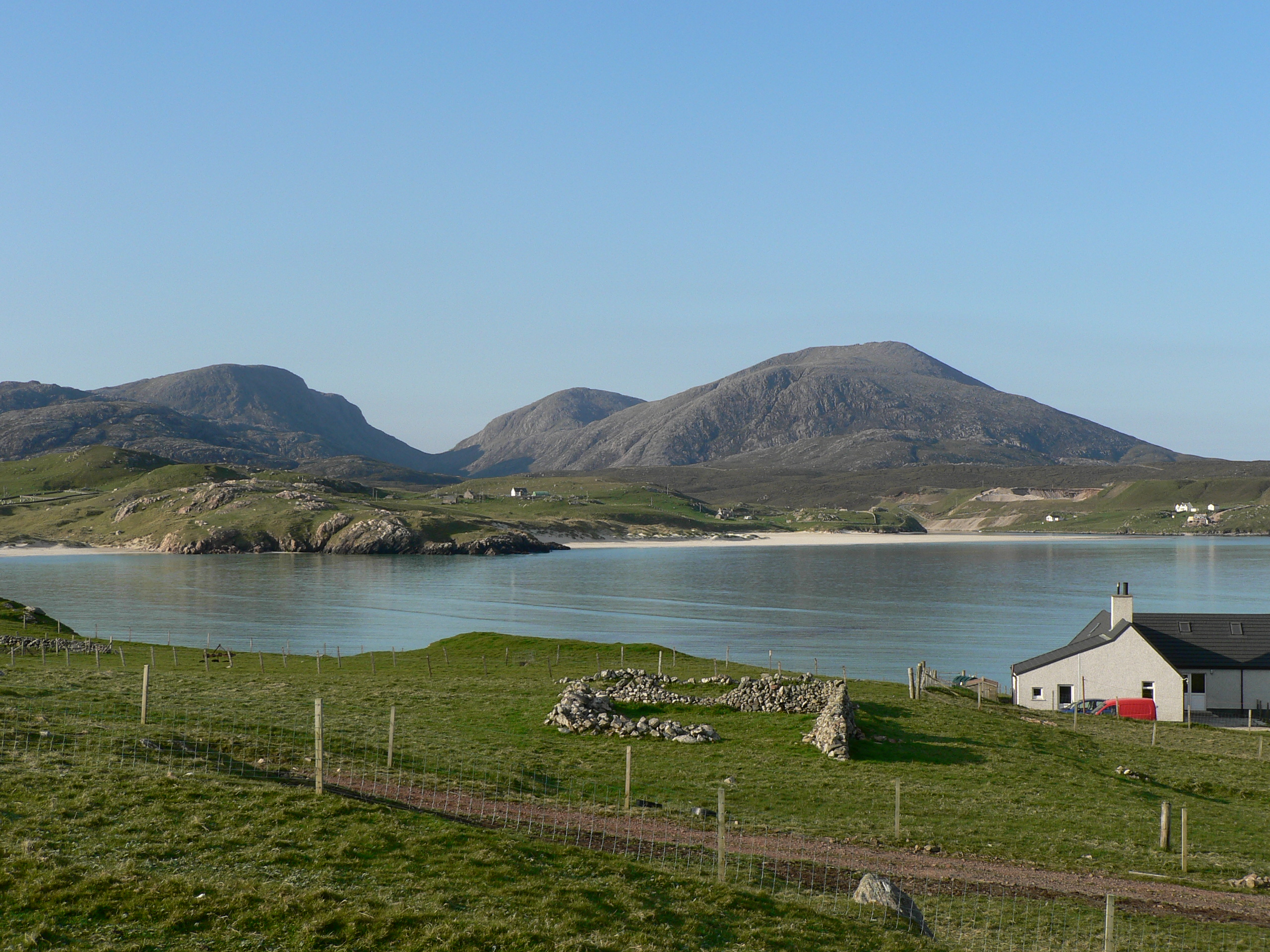Category: History (page 12)
TB Day
Taigh Sgoile Chiosamuil (1 Timsgarry)
Lochcroistean
Norman Macleod, Am Bàrd Bochd, taught at Lochcroistean school from 1936 to 1943, and was a noted bard who composed the following about Lochcroistean and some of the people he knew there. The last four verses constitute his song about the people of Geshader.
Lochcroistean School was in use until the new Uig school opened at Timsgarry in 1972. The building housed the Comann Eachdraidh museum for many years and is now a cafe and visitors’ centre.

Air sgiathan m’ inntinn siùbhlaibh mi
Do ghleann tha àillidh ciùin,
Is tillidh trian de m’ òige rium
Is triallaidh trian de m’aois
An dìomhair smuain thèid mi air chuairt
Le aoibhneas cuimhne blàth
Do ghleann a dh’fhàg a dhealbh nam chrìdh’
Lochroistean anns na Bàigh.
Tha ìocshlaintean s an t-sàmhchair ann
Is slàinte ruit a ghlinn;
Tha tàladh sìor is bàrdachd
Ann am piurbraich bhreac na uillt;
‘S nuair thilleas mais’ is dìomhaireachd
a shamhraidh cheòlmhor eun
Bidh coilich fraoich ri dùrdail
Is ri tùchan air gach sliabh.
Coming to Uig Lodge, 1891
Colonials Return, 1918
Excerpts from Stornoway Gazette, Local and District News (Uig)
April 5th, 1918
FRIENDS FROM ACROSS THE SEA: One of the few pleasurable results of this terrible and miserable war is the occasional opportunity offered to friends and relations at home of meeting and welcoming friends and relations from beyond the seas – friends whom, in the ordinary course of events, they might never have then chance of seeing. Long ago many families from Uig and elsewhere were forcibly and unjustly ejected from their happy, if humble homes, and banished to far-off lands in order to make room for sheep and deer. The descendants of those evicted, disregarding the injustice and the wrong so glaringly inflicted upon their ancestors, listened to the call of duty, took up arms in defense of the Mother Country, and offered their services -their lives possibly – in order to help and save her from the tyranny of a treacherous and cruel foe. These come in their hundreds and thousands from all quarters of the globe – from the far West of Canada, to the Far East of Australia and New Zealand, and all the Colonies in between. Ties “lighter than air but stronger than iron bands”, bind these Colonists to the home country, and particularly to the “old haunts” of their forebears, and during their respite from military duties they take the opportunity of visiting these scenes and seeing the descendants of their forefathers’ compatriots. We also are delighted to see these scions of the old stock, and glory in the realisation of a connecting link between our own present and the past generation of old stalwarts and graceful beauties of whom we have heard so much. What also gives very great pleasure is the fact that many of these speak fluently, the old mother tongue, and, what is no less surprising, they speak it with practically the same tone and accent as if they have been born, and brought up within sound and sight of Traigh Mhoir Uige.
Plans for Carnish, Mangersta, Islivig and Brenish, 1851
The Grana Rescue at Mangersta
Mangersta, Uig, Isle of Lewis, originally uploaded by rachel 79.
Christina Mackay, Uig’s Victorian heroine, was the wife of Donald Mackay, who had the farm at Mangersta after the township had been cleared in 1872 and the people resettled for the most part in Doune Carloway.
In October 1896, a gale had been blowing for days and out at sea a Danish schooner was being battered by relentless winds and raging waves. On the evening of 21st this boat was in a sorry state. It had lost its bowsprit, the starboard bow was smashed in, and the bulwark from the stem to opposite the foremast was carried away along with the lifeboats. The sails were torn to ribbons, and excessive strain on the hull had caused it to leak. The crew hoisted distress signals but no one noticed, so the Captain decided their only hope was to run ashore. He spotted a sandy creek and the whole boat was carried in on the crest of a gigantic wave. They scraped over some rocks and then hit the sand. Iain Mackay, son of Donald and Christina, was on his way home from school and . He spotted the stricken vessel being driven ashore and ran home to tell of his exciting news.


